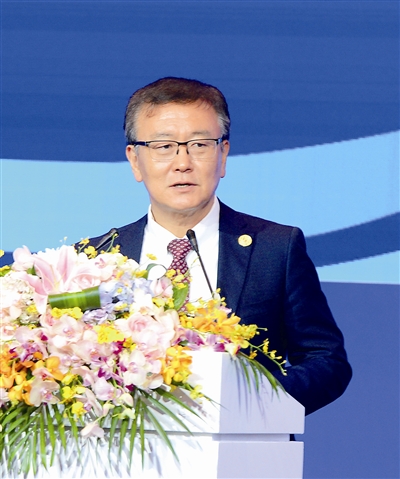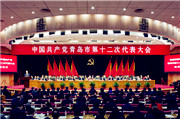Standards make cities smarter
( chinadaily.com.cn )
|
|||||||||
 |
|
Dr Chaesub Lee, director of ITU's Telecommunication Standardization Bureau, delivers a speech at the 2017 Qingdao Forum on International Standardization on June 28. [Photo/dailyqd.com] |
Dr Chaesub Lee, director of ITU's Telecommunication Standardization Bureau
International Technological University (ITU) has long been committed to the development of smart cities. Artificial intelligence (AI) and banking are of crucial importance in smart city construction.
For now ITU-T Study Group 20 (SG20) is developing a technical report on AI and the Internet of things (IoT). ITU-T SG3 is developing a draft recommendation on policies and ethical frameworks including guiding principles for AI. ITU-T SG11 has several ongoing work items dealing with IoT testing that may relate to smart cities.
ICT Discoveries, the ITU journal, also invites submissions to explore novel applications of AI techniques that can improve the performance and efficiency of communication infrastructure, bolster systems and components, create new services and ensure optimal user experience.
Around 1.5 billion people in the world do not have a digital identity and cannot engage in financial transactions. Digital identity can help to enhance financial inclusion strategies and fast track opening of transaction accounts. Strong digital id systems can lead countries to become more economically prosperous and secure, operate more effectively and efficiently, protect human rights, and deliver public benefits.
The ITU-T Focus Group Digital Financial Services has related deliverables consisting of 28 technical reports and 85 policy recommendations.
The Focus Group on Digital Currency including digital fiat currency will carry out an investigation of the requirements for network infrastructure for digital currency issued by central banks and digital fiat currency platforms focusing on the platforms' features and characteristics. It will also investigate meeting security challenges to prevent counterfeiting of currencies in digital form and overcoming challenges of interoperability with other payment systems.
ITU and UNECE have launched "United for Smart Sustainable Cities", which advocates for public policies to encourage the use of information and communication technologies to facilitate and ease the transition to smart sustainable cities.
In addition, ITU together with 15 other UN agencies is carrying out a series of pilot projects to implement KPIs (key performance indicators) for SSC (smart sustainable cities). These pilots are taking place in over 50 cities worldwide. Very recently a case study was published documenting the process and results obtained. The case study shows how Dubai implemented the KPIs and contains a series of policy recommendations a city may follow to become more sustainable and smarter.




